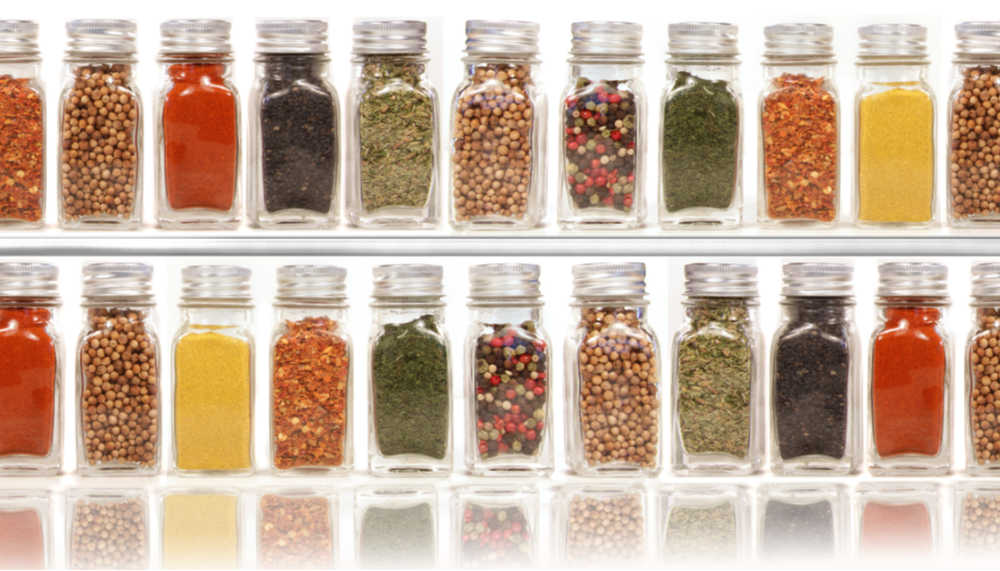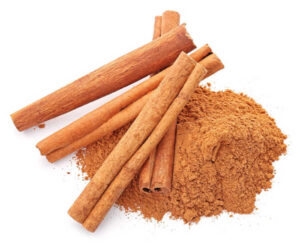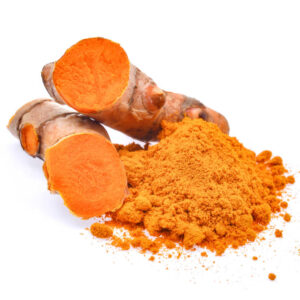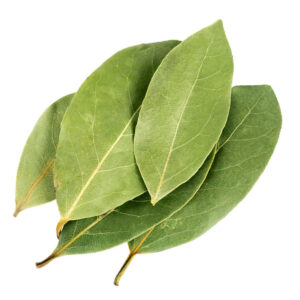Certain spices can be harmful to dogs, and it’s essential to be aware of which ones to avoid. There are spices that can kill dogs! This list includes common spices like garlic, cloves, and nutmeg.
Knowing which spices dogs can and cannot eat is crucial if you want to let your dog eat from the table or if you enjoy cooking for your dog. It is critical for your dog’s health and safety. What you should know about dogs and spices is this.
Cooking for yourself is one thing, but cooking for your dog requires more caution. There are some spices that are too potent, some that are hazardous, and others that won’t have any effect on dogs at all. Keep reading to learn more about which is which.
Ask your veterinarian any concerns you may have regarding your dog consuming spices if you want to ensure their safety. Table Of Contents.
Dogs and Spices: What You Need To Know

Can dogs eat spices? It might be tempting to make an extra serving of dinner and give it to your dog.
This is a thorough list of spices that can and cannot be consumed by dogs, including those that are safe but you should exercise caution when using them.
Always keep in mind that giving your pet large amounts of anything is not a good idea. Using a few of the safe spices on your dog’s food is acceptable, but you should exercise caution nonetheless. Dogs don’t require highly spiced foods (like we do on our human food) because they have fewer taste buds than humans.
If you think your dog ingested unsafe or toxic spices, call the pet poison helpline at 855-764-79661 or your local veterinarian. And please, if you have questions about whether an essential oil is safe or if herbs have health benefits for your dog, ask your veterinarian.
This list is for you if you’ve ever wondered, “What spices can dogs eat?” Many spices can be either completely toxic for dogs or completely safe for humans.
Let’s start by going over all the spices that are completely safe for your dog, along with some tips for using them.

According to the ASPCA, cinnamon powder is non-toxic for dogs. Especially in the fall, this is a great spice to add to homemade dog biscuits.
Dogs can safely eat ceylon cinnamon without side effects. In fact, it can lower blood pressure, lowering your dog’s risk of developing heart issues. The anti-inflammatory properties can help decrease joint pain too.
Be aware that many ingredients that are frequently combined with cinnamon in dog treat recipes are actually very bad for your dog. Avoid giving your dog nutmeg, chocolate, raisins, or macadamia nuts.
Yes, dried and ground coriander is safe for dogs. Another name for it is cilantro. It can help calm stomach upset.
Read more about dogs and cilantro.
Yes, can dogs eat ginger. Some holistic veterinarians treat puppies’ upset stomachs with ground ginger. See this article about dogs and ginger for more details.
This easy-to-follow recipe for apple-ginger dog treats is very popular with puppies.
Small doses of saffron are typically safe for your dog to consume. Of course, if your dog consumed the entire jar of saffron, their stomach might become upset.
Give your dog a small amount of saffron at first because some dogs may not respond well to it.

Humans have utilized turmeric for its antioxidant and anti-inflammatory properties. It is known to be safe for dogs to eat, but there haven’t been many studies to determine whether it’s equally beneficial for dogs.
In fact, some dog foods list turmeric as an ingredient. It is a fairly typical additive that makes the food taste better and gives it a more natural color.
These spices are ok for dogs. You can give your dogs the spices on this list, but you should only give them a tiny bit at a time.
Anise is the flavor most off associated with licorice. In fact, the artificial hare used in greyhound racing is doused in anise oil, so you know how dogs will react to it if you’ve ever seen a cat go crazy over catnip.
Anise is safe for dogs in small doses. Overeating can upset your dog’s stomach or cause their nervous system to become depressed.
Use a tiny bit of anise in a homemade dog treat as this is the safest way to give it to your dog.
Yes, dogs can safely eat ground cardamom in moderation. Due to its anti-inflammatory properties, some pet parents use it holistically as an energy booster and a treatment for ringwork.
Be aware that dogs may experience laxative effects from too much cardamom.
Cayenne pepper is safe for dogs to eat, but they won’t want to touch it. For a dog, it is extremely irritating to the skin, eyes, and nose. Keep it away from your dog even though it’s safe for dogs.
In small amounts, cumin is completely safe for dogs. Be careful with how much you use, however. It might cause your dog’s stomach to upset or give them painful gas in large doses.
Cumin may provide older dogs with energy or a boost to their immune systems in small doses.
Give your dog a small amount to taste before you start adding it to their food, and watch how they react.
Yes, dogs can heat dried oregano. Due to its antifungal and antibacterial qualities, it benefits your dog’s immune system. Additionally, it might benefit senior dogs by lowering their risk of osteoarthritis.
Be aware that giving your dog too much dried oregano can cause gastric irritation.
These are the spices dogs should not eat. Read this list carefully, keep these spices out of your dog’s food, and forbid your dog from consuming human food containing any of these.
Within this list are spices that are poisonous for dogs.
The dried berries of the Pimeta dioica plant, a member of the myrtle family, are used to make allspice. All types of myrtle are toxic to dogs. Eugenol, which is present in the dried berries and ground allspice, can be toxic to dogs’ livers.

Bay leaves are toxic for dogs. They have eugenol and other toxic essential oils in them.
Your dog may experience some of the following signs after eating a bay leaf:
This leaf’s jagged edges could hurt the GI tract.
Dogs lack the same enzymes that humans do that allow them to metabolize some essential oils and eugenol. Contact your veterinarian right away if you suspect your dog consumed a bay leaf.
No, dogs cannot eat chili powder. Due to their sensitivity to spicy foods, dogs may experience serious stomach upset if they consume chili powder.
Chili powder is not exactly toxic for dogs. They may only begin to sneeze frequently and experience stomach discomfort if they unintentionally consume something that was spiced with chili powder. Give them plenty of water and watch for worse symptoms.
Cloves contain eugenol, which a dog’s body cannot digest, similar to bay leaves. For this reason, cloves are considered toxic to dogs. It can cause serious liver problems.
Some sources assert that cloves may not be particularly harmful to dogs. However, I advise staying away from it entirely and consulting your veterinarian before giving it to your dog because there is still a chance it could hurt them.
Dogs should not eat cocoa powder. It has a theobromine content of up to 26 mg per gram, which is extremely toxic to dogs.
Caffeine, which is also found in cocoa powder, significantly raises a dog’s heart rate and stimulates their nervous system.
Another strong spice that dogs cannot digest is curry. In the same way that too much curry can result in diarrhea and other issues like an upset stomach
Give your dog plenty of water and keep an eye out for any health issues like lethargy and vomiting if they consume your curry.
Signs of pumpkin spice toxicity in dogs
There are side effects to too much pumpkin spice, including diarrhoea, nausea, and vomiting. The ginger spice can also cause a dog to experience “ginger jitters,” according to Dr Burch said. Dogs who consume nutmeg may also experience hallucinations, an elevated heart rate, high blood pressure, or dizziness. In the worst scenarios, and [with] excessive consumption of pumpkin spice, dogs may develop liver disease. ”.
Take your dog to the vet or emergency room right away if he consumes pumpkin spice and begins to exhibit symptoms of toxicity.
If your dog eats too much pumpkin spice, it might be best to take them to the nearest vet so they can induce vomiting, advises Dr Simon said.
So, can dogs have pumpkin spice safely?
According to the spices used in the recipe, intentionally giving pumpkin spice to your dog could be toxic and even fatal.
“I’d suggest avoiding pumpkin spice because it typically contains cloves and nutmeg,” Dr. Kong said.
Fortunately, it’s unlikely that your dog will be particularly interested in eating some pumpkin spice.
“As pumpkin spice is so fragrant and strong-smelling, most dogs would not find it appealing,” Dr. Linda Simon, a veterinary surgeon and a veterinary consultant for FiveBarks, told The Dodo. “It is unlikely they would elect to eat it in large [enough] quantities to cause an issue.”
The high sugar, fat, and lactose content of the other ingredients will likely be more of a concern than the small amount of spices added if you’re unsure whether your dog should consume a sip of your PS latte or other pumpkin spice treats. But generally speaking, keep your dog away from these seasonal treats to avoid actually making him sick.
FAQ
Can dogs have clove?
Cloves: No. According to Patton Veterinary Hospital, large amounts of cloves or clove oil are harmful to pets because they contain eugenols.
Can dogs have cinnamon cloves and nutmeg?
Although nutmeg, a common baking spice that is frequently combined with cinnamon in recipes, can be toxic to dogs, cinnamon may not be toxic to them. Myristicin, a toxin found in nutmeg, can result in hallucinations, a faster heartbeat, confusion, high blood pressure, stomach pain, dry mouth, and even seizures.
How much nutmeg is toxic to dogs?
One teaspoon of ground nutmeg to two or three whole nutmegs can be a toxic dose. After your pet eats nutmeg, symptoms can occur rapidly.
Is clove powder bad for dogs?
Cloves appear to be relatively safe for dogs. Interestingly, clove powder or oil can numb the skin and is occasionally used by people to treat mouth pain naturally. Generally speaking, ginger is safe for dogs and cats, but as with all ingredients, avoid feeding large amounts or fresh ginger pieces.